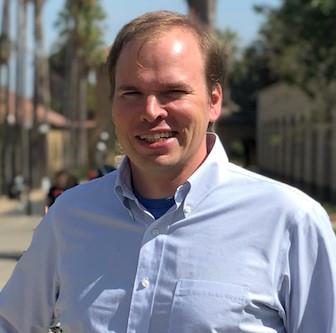Data Driven Insights from the MoTrPAC Consortium on the
Multi-Omic Response to Exercise
Matthew Wheeler, M.D., Ph.D.
Associate Professor of Medicine, Stanford University
The Molecular Transducers of Physical Activity Consortium (MoTrPAC) aims to map the
molecular response to exercise, enhancing our understanding of its role in health and disease
prevention. The consortium’s first study offers an extensive temporal map of the dynamic multiomic response to endurance exercise training across various rat tissues. The MoTrPAC data hub
(https://motrpac-data.org), a central resource, provides extensive multi-omic data with advanced
tools for exploration and analysis. This hub comprises 211 datasets across 19 tissues, including
transcriptomics, epigenomics, proteomics, and metabolomics, covering 25 molecular assays and
4 training time points in young male and female animals. It identifies key analytes differentially
regulated by endurance training, many showing sex-specific patterns. The hub includes the
complete workflow, source code for data processing, QC, specialized pipelines for multi-omics
analysis, and sophisticated visualization tools, enabling comprehensive examination and
interrogation of the molecular effects of endurance exercise.
Wednesday April 10, 2024 at 11:00a
CAMP 175
Dr. Wheeler grew up in Potsdam NY where he witnessed the greatest moments of the SUNY Potsdam Bears and Clarkson hockey games at both Walker and Cheel Arenas. After graduating high school he attended Williams College and then the University of Chicago where he received his MD and PhD degrees. He pursued graduate medical and postdoctoral training at Stanford University School of Medicine where he has remained on faculty within the Division of Cardiovascular Medicine. Now Associate Professor of Medicine, he is a physician scientist with interests in cardiomyopathies, rare and undiagnosed diseases, therapeutics and genomics. His research training in myocardial and skeletal muscle biology and genetics, genomics, and multi-scale networks. As a physician, he treats patients with hypertrophic cardiomyopathy, neuromuscular disease associated cardiomyopathies, and inherited dilated cardiomyopathies, advanced heart failure and heart transplants. He has extensive translational science efforts, as site PI for clinical trials for hypertrophic cardiomyopathy and dilated cardiomyopathy and for cardiomyopathy consortia including NONCOMPACT, PPCM and the Precision Medicine Study/DCM Consortium. He is PI of Stanford’s NIH-funded Center for Undiagnosed Diseases, a clinical site of the Undiagnosed Diseases Network, and of the GREGoR Stanford Site of the GREGoR Consortium. He is PI of the Bioinformatics Center of the Molecular Transducers of Physical Activity Consortium and a member of the Common Fund Data Ecosystem, where he leads bioinformatics analysis and data management for the Consortium as it seeks to understand the molecular map underlying the health benefits of exercise.



